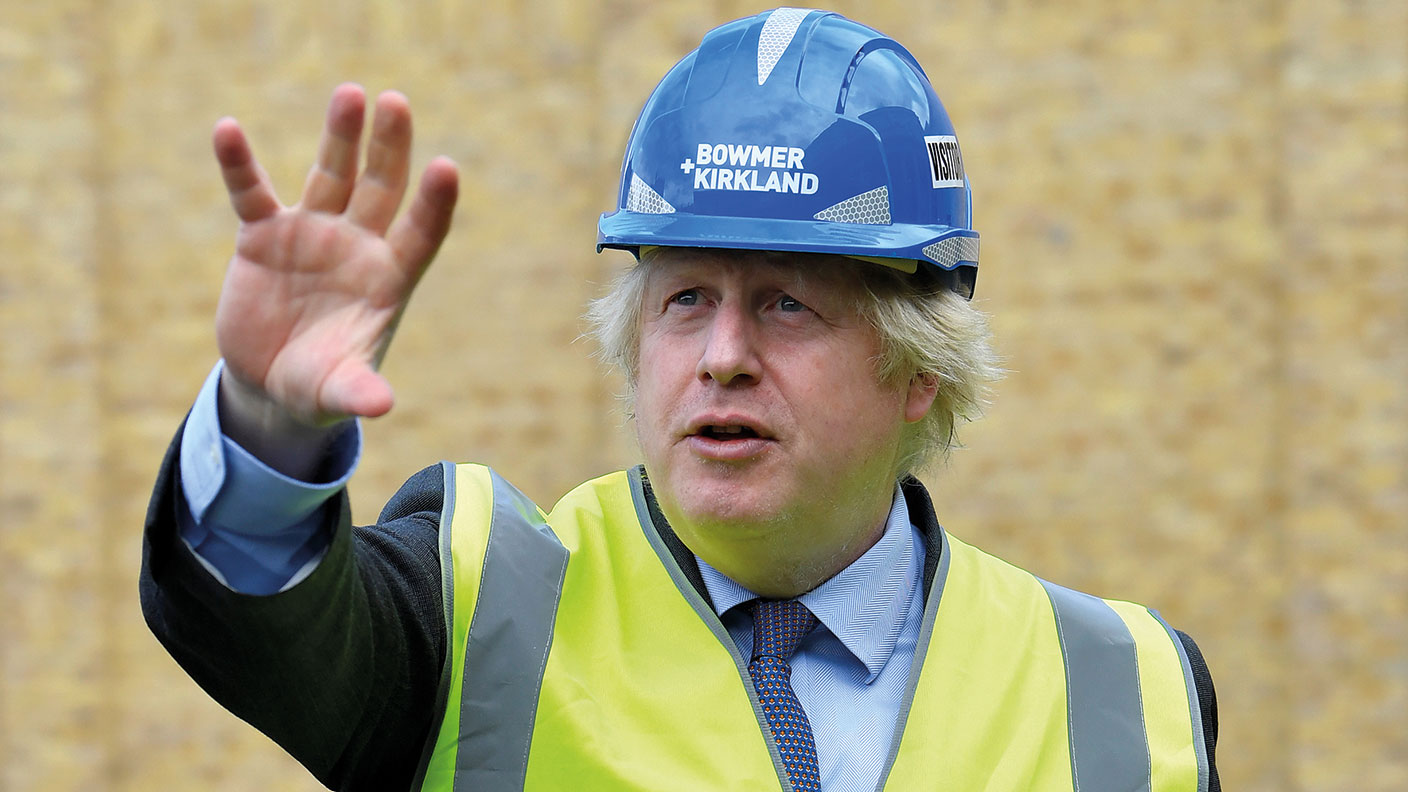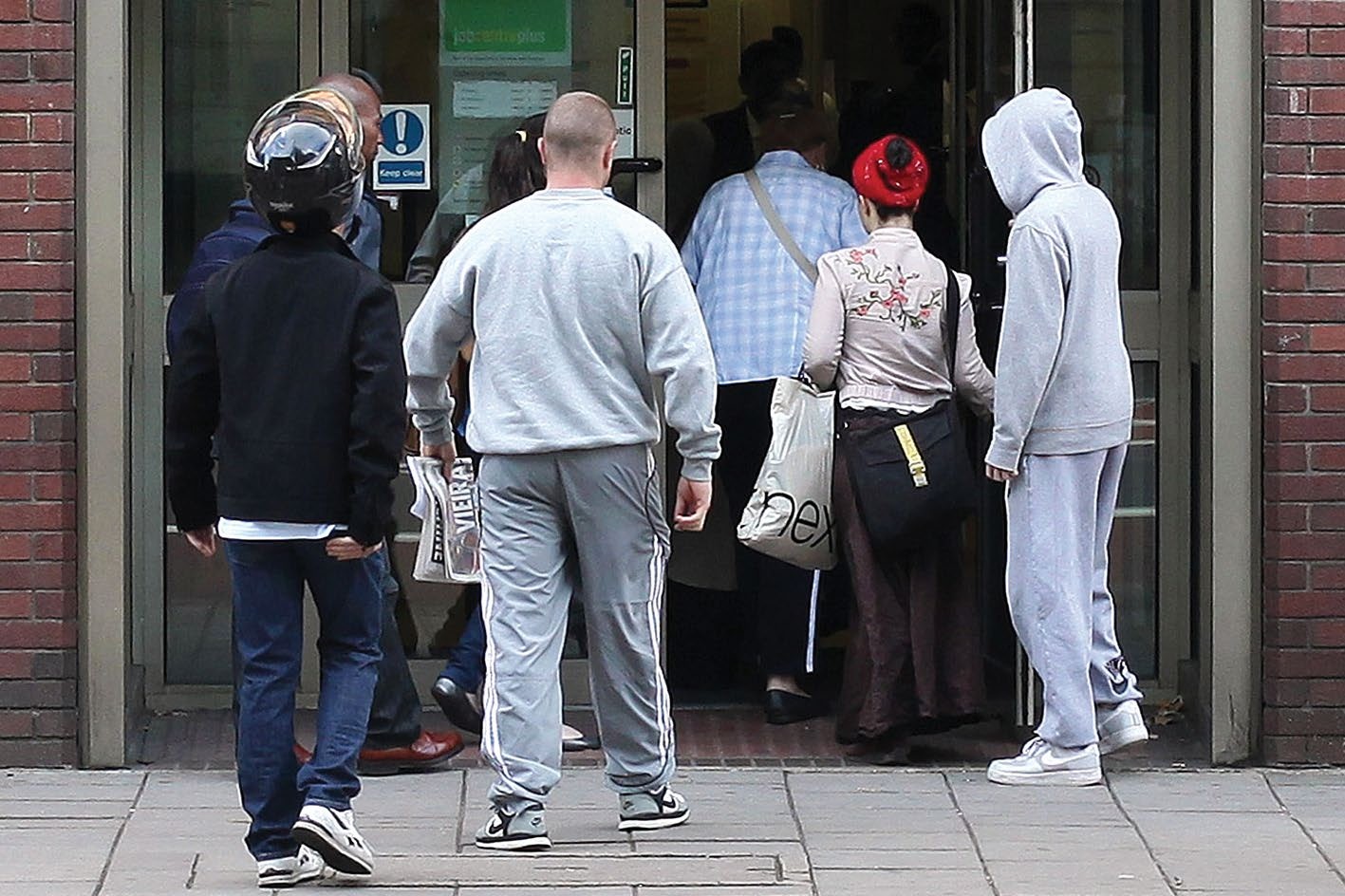Five ways to boost the economy
Boris Johnson is making a bonfire of planning red tape. Here Matthew Lynn proposes some more rules for the flames.


Get the latest financial news, insights and expert analysis from our award-winning MoneyWeek team, to help you understand what really matters when it comes to your finances.
You are now subscribed
Your newsletter sign-up was successful
Want to add more newsletters?
There’s nothing Boris Johnson likes more than to be photographed with a hard hat breaking ground on a new building project. As mayor of London, there was rarely a skyscraper, airport or tunnel Johnson didn’t want to start work on. As he looks for ways of reviving an economy that, even as lockdown has eased, is still in the middle of its worst slump for a century or more, it was always inevitable that lots of construction would take the lead on creating new jobs and more demand. With its massive deregulation of planning rules, the government is hoping to start a building boom that will lead us out of recession.
That’s all to the good. A construction boom helped us out of the Great Depression. The UK has some of the tightest planning rules in the world and some of the most inefficient. If we can use this crisis to push through the reforms to fix that, so much the better. But why stop there? If deregulation will liberate the building industry, why not the rest of the economy too? Here are five places we could start.
1. Free the self-employed
The only real growth as we recover from this epidemic is going to come from the gig and hustle economy. Lots of high-earning self-employed professionals could be a lot more effective if they took on an assistant. But they don’t because it immediately traps them in the whole nightmare of employment law and tax and pension regulations. It would be easy to exempt the first employees from all those rules. Likewise, how about a £5,000 tax-free hustle allowance that allows people a side gig they don’t have to pay tax on? Both would create jobs.
Try 6 free issues of MoneyWeek today
Get unparalleled financial insight, analysis and expert opinion you can profit from.

Sign up to Money Morning
Don't miss the latest investment and personal finances news, market analysis, plus money-saving tips with our free twice-daily newsletter
Don't miss the latest investment and personal finances news, market analysis, plus money-saving tips with our free twice-daily newsletter
2. Simplify taxes
Our tax system has become so cluttered with rules that it stifles investment. From patent boxes to research and development allowances, to tax breaks on films and farmland, over the last two decades successive chancellors have created a tax system that’s starting to collapse under the weight of its own complexity. Abolish five taxes in every Budget for the next four years and it would start to look a lot simpler.
3. Scrap the EU’s data rules
The EU’s absurd rules on data privacy should go once the Brexit transition period ends. The big companies can afford to pay for all the systems needed to comply with them, but they hammer small businesses and start-ups, reducing competition and harming consumers. Beyond a few basic rules to protect privacy, we should turn the UK into the most open data economy in the world. After all, that is where the growth is.
4. Release the flying taxis
We should also create a wave of innovation by encouraging new technologies. From flying taxis to driverless cars to vertical farms, robotics and lab-grown meats, there are lots of technologies edging their way into the market that could turn into huge industries very quickly. Most countries are being very cautious about allowing them to get started – the EU, for example, is insisting that artificial intelligence decisions are approved by a real person, which kind of misses the whole point as the purpose of AI is to make better and quicker judgements than humans do. If we reduce approval times the UK can be turned into a laboratory for new ideas – and investment will flood in.
5. Open the floodgates
Finally, we should speed up immigration. As we complete our departure from the EU we are already quite rightly reshaping our immigration system so that it focuses on skilled people from around the world rather than anyone who happens to have come from within Europe. But we also need to simplify the process. It is crazy that it takes a company two or three months to get a work visa for a skilled person they need to help grow their business. A week should be plenty. If we make the UK one of the easiest places in the world to assemble talented teams of people from around the world, that will be a powerful incentive to base a company in this country – and it will help our own businesses grow faster as well.
Get the latest financial news, insights and expert analysis from our award-winning MoneyWeek team, to help you understand what really matters when it comes to your finances.

Matthew Lynn is a columnist for Bloomberg and writes weekly commentary syndicated in papers such as the Daily Telegraph, Die Welt, the Sydney Morning Herald, the South China Morning Post and the Miami Herald. He is also an associate editor of Spectator Business, and a regular contributor to The Spectator. Before that, he worked for the business section of the Sunday Times for ten years.
-
 What do rising oil prices mean for you?
What do rising oil prices mean for you?As conflict in the Middle East sparks an increase in the price of oil, will you see petrol and energy bills go up?
-
 Rachel Reeves's Spring Statement – live analysis and commentary
Rachel Reeves's Spring Statement – live analysis and commentaryChancellor Rachel Reeves will deliver her Spring Statement on 3 March. What can we expect in the speech?
-
 UK small-cap stocks ‘are ready to run’
UK small-cap stocks ‘are ready to run’Opinion UK small-cap stocks could be set for a multi-year bull market, with recent strong performance outstripping the large-cap indices
-
 The scourge of youth unemployment in Britain
The scourge of youth unemployment in BritainYouth unemployment in Britain is the worst it’s been for more than a decade. Something dramatic seems to have changed in the labour markets. What is it?
-
 In defence of GDP, the much-maligned measure of growth
In defence of GDP, the much-maligned measure of growthGDP doesn’t measure what we should care about, say critics. Is that true?
-
 Reach for the stars to boost Britain's space industry
Reach for the stars to boost Britain's space industryopinion We can’t afford to neglect Britain's space industry. Unfortunately, the government is taking completely the wrong approach, says Matthew Lynn
-
 "Botched" Brexit: should Britain rejoin the EU?
"Botched" Brexit: should Britain rejoin the EU?Brexit did not go perfectly nor disastrously. It’s not worth continuing the fight over the issue, says Julian Jessop
-
 'AI is the real deal – it will change our world in more ways than we can imagine'
'AI is the real deal – it will change our world in more ways than we can imagine'Interview Rob Arnott of Research Affiliates talks to Andrew Van Sickle about the AI bubble, the impact of tariffs on inflation and the outlook for gold and China
-
 Tony Blair's terrible legacy sees Britain still suffering
Tony Blair's terrible legacy sees Britain still sufferingOpinion Max King highlights ten ways in which Tony Blair's government sowed the seeds of Britain’s subsequent poor performance and many of its current problems
-
 How a dovish Federal Reserve could affect you
How a dovish Federal Reserve could affect youTrump’s pick for the US Federal Reserve is not so much of a yes-man as his rival, but interest rates will still come down quickly, says Cris Sholto Heaton